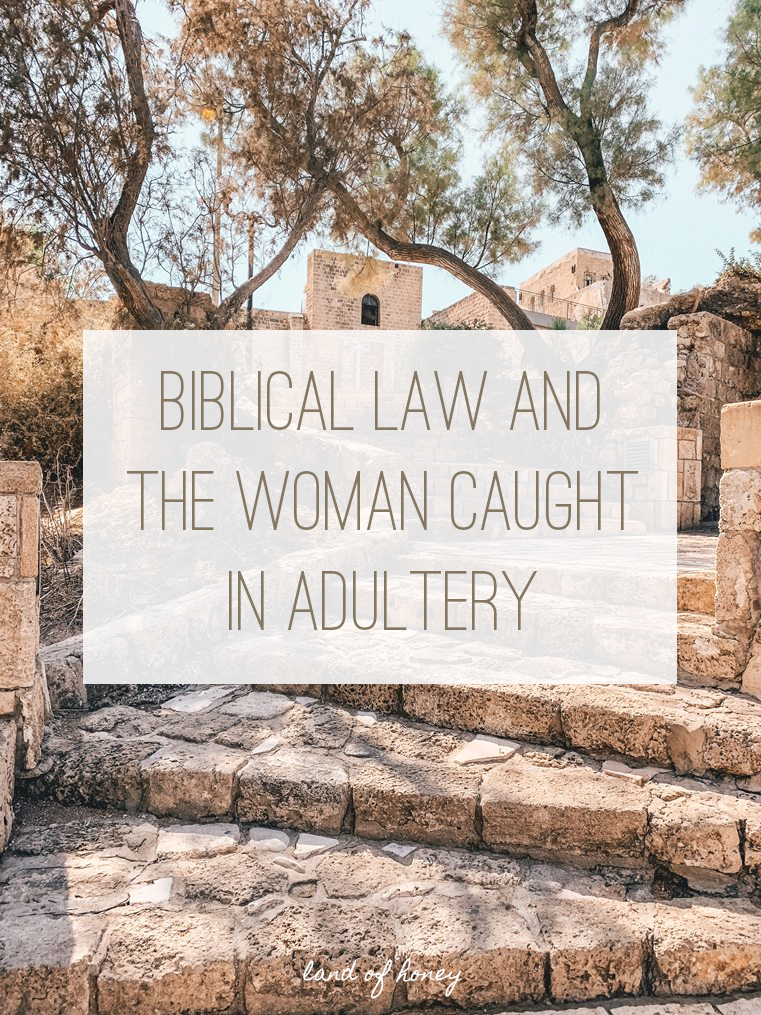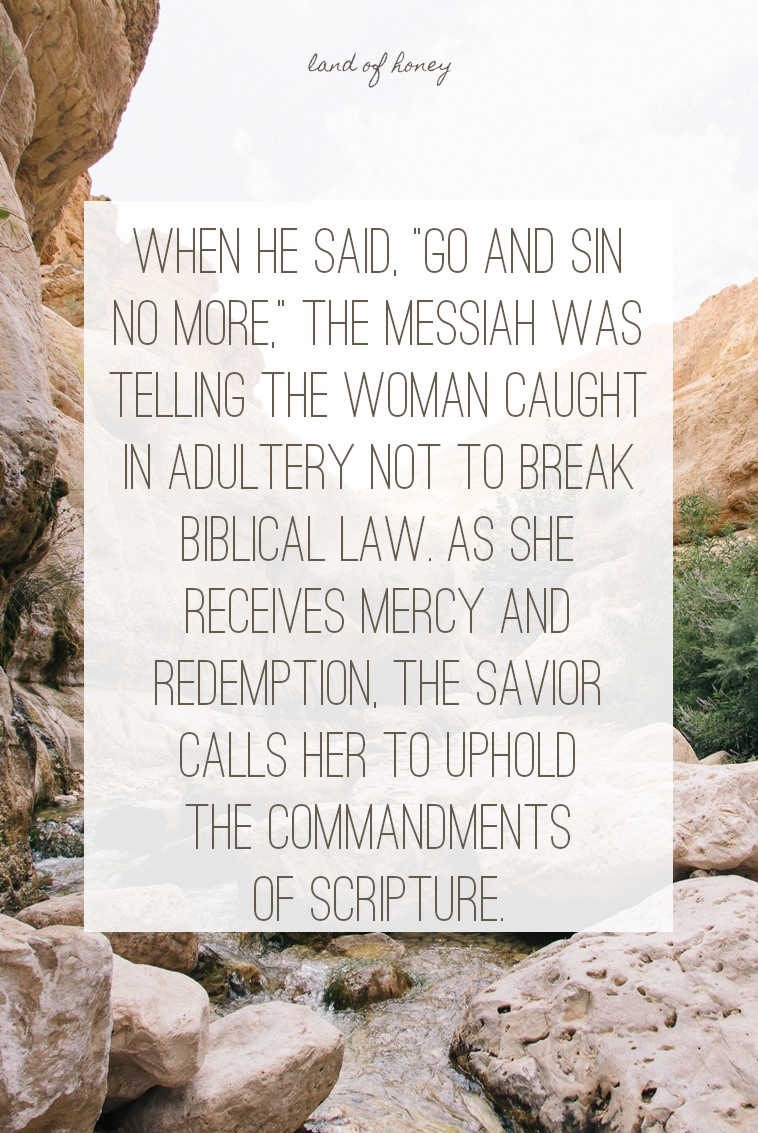Many of us have been told that when the Messiah let the woman who was caught in adultery go free, instead of being stoned to death, he changed Biblical law. Is that what happened?
This story comes to us from John 8. You're probably familiar with it. Jewish leaders brought a woman who had been caught in adultery before the Messiah. They said that in the Torah, Moses commanded that adulterers be stoned. What did Yahusha say about this?
They were looking for a way to trap him theologically. They wanted him to disagree with Moses. Keep in mind that they were not coming to him for advice or because it was required of them. They were experts in Biblical law and they had the authority to carry it out. This was either a trap or a test. He could have dazzled them with his wisdom, as he had before. But what did he do? He stooped down, and used his finger to write in the dirt like he didn't hear them. (John 8:6)
The Bible doesn't say exactly how long the Messiah wrote in the dirt, or what words he put down. Did he write out the passage they were referring to? Did he reference another part of Scripture? Did he write their names or sins? Did he write Psalms of repentance or about the hope of forgiveness through him? Did he write the truth about this situation?
They kept questioning him, and eventually he stood up and said one of his more famous phrases. "He who is without sin among you, let him be the first to throw a stone at her." (John 8:7)
He stooped back down and went back to his writing. One by one the accusers and crowd went away, from oldest to youngest. After that he spoke to the accused woman. She told him that no one had condemned her. "Neither do I," he said to her. "Go and sin no more." (John 8:11)
Does this prove that the Messiah is altering Biblical law?
Deuteronomy 22:22 does say that adultery is a sin punishable by death:
"When a man is found lying with a woman married to a husband, then both of them shall die, both the man that lay with the woman, and the woman. Thus you shall purge the evil from Israel."
Biblical law says she deserves death. But not so fast. It also says here that both the man and the woman involved are to be put to death. Where is the man? If the religious leaders were so concerned with rightly dealing with sin, why didn't they bring him to the Messiah? There is no way for the woman to be "caught in" adultery, but not the man. It's not like they didn't know who he was. This seems to imply that something fishy is going on...did they lure her into a trap? Did someone come to them and accuse her falsely? Had she committed adultery with one of the accusing religious leaders and now they were hoping to do away with her while avoiding their own punishment?
Biblical law also says that someone can't be put to death on the testimony of only one witness. It would require two or three. While this passage of Scripture makes it sound like a fairly sizable group was present (she was brought by both scribes and Pharisees, both plural), it would seem extremely suspicious if everyone in this group was a firsthand witness to this sin. This indicates that many people present were accusing her on hearsay alone, which would be wrong and unfair. Since Scripture doesn't tell us that she was caught by at least two or three witnesses, we can't be 100% sure that there were enough witnesses to justify stoning. That means we can't be certain that the Bible truly calls for her to be stoned here.
Deuteronomy 17:7 says that the witnesses who caught her would be required to throw the first stones at her. I believe this was intentional by YHWH to prevent deaths unfairly...if you were going to accuse someone of a weighty sin, then you had to be ready to have their blood on your hands. This means it would be a sin to throw the first stones at someone caught in adultery, if you were not one of at least two witnesses to this sin. Scripture does not definitively say that the witnesses were present in John 8. If they weren't, it would have been wrong to stone her.
The man was not present, and it's not clear if there were first-hand witnesses present. This would make it against Biblical law to stone her, even if she truly had been caught in adultery. Would it be just to put someone to death on hearsay when the other alleged perpetrator of the crime is not even charged? It would not be, according to the laws given in the Torah.
Yahusha followed Biblical law by not stoning her. As a result it was a beautiful foreshadow of his taking the punishment that we all deserve for our sins. His death doesn't mean that adultery or breaking other Biblical commandments is now okay, but it means that forgiveness and redemption are possible when we repent of our mistakes.
"Go and sin no more," doesn't mean what she did was permissible. The Messiah calling it sin tells us it was definitely sin. By telling her not to sin, he was telling her not to break Biblical law. Even as this woman receives mercy and redemption, the Savior calls her to uphold the commandments of Scripture.
Related posts:
Commandments or Traditions - Understanding the New Testament
Stoning in the Bible
How the Bible Defines Sin









No comments:
Post a Comment